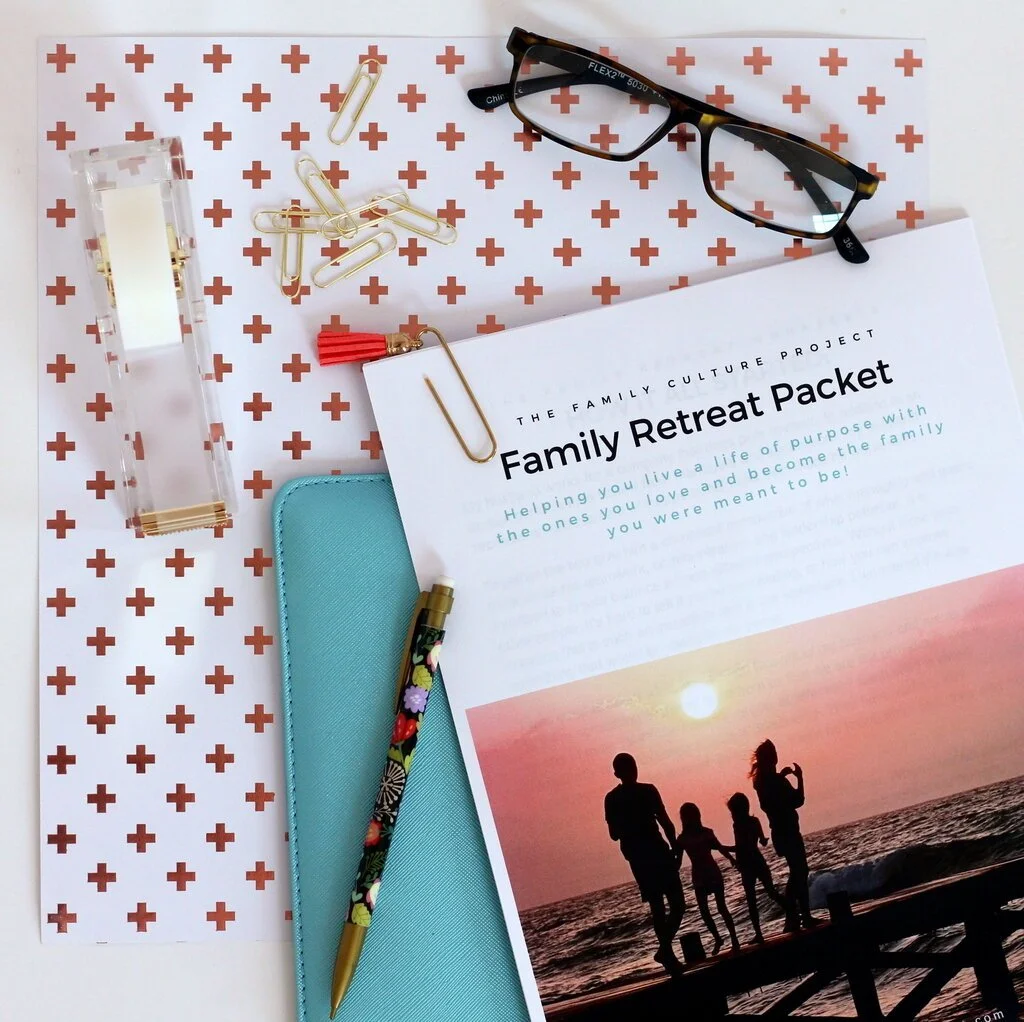Why Feedback is the Secret to a Stronger Family
Giving and receiving feedback is essential to the health and growth of any culture, including your family’s. And yet, many of us avoid it. It’s not easy. It requires humility, vulnerability, and practice.
Our family does an annual 360 peer review (I’ve talked about it HERE), uses questions similar to those found in workplace evaluations. These conversations help us reflect on how we’re doing both individually and together. They're not always comfortable, but the insight we gain is invaluable.
I’ll be honest: I don’t always want to hear what others think about me.
But without honest and timely feedback, we miss opportunities to grow. When done well, feedback doesn’t harm relationships—it strengthens them.
Why Feedback Feels So Hard
When we hear feedback—or what we perceive as criticism—our brains go into protection mode. We might get defensive, dismiss it, or refuse to believe it. But when we react this way, the people in our family may feel unheard or undervalued.
If instead we learn to welcome feedback and receive it well, we create a home culture where growth is possible—for each person and for the family as a whole.
Feedback Reveals What We Can’t See
We need feedback because we all have blind spots. Without input from others, it’s hard to know what’s working—and what’s not.
I remember the first time we asked our kids for feedback. We expected the usual: less bickering, better time management. But what surprised us were comments like:
“Push me to learn and manage my time better.”
“Be more strict—to help me meet my goals.”
“Tell me to practice more.”
Yikes. I thought I was being supportive by taking it easy. But what they really needed was accountability and structure. Because we were open, we could adjust and create a plan that served everyone better.
Feedback Doesn’t Equal Failure
Hearing something less than flattering doesn’t make you a bad parent. In fact, the most effective leaders seek feedback to grow. We should do the same in our homes.
Andy Stanley puts it this way:
“Leaders who don’t listen will eventually be surrounded by people who have nothing to say.”
We don’t want that. We want our kids to feel safe enough to tell us what they need.
How to Receive Feedback Well
Here are four practices that can help:
1. Change how you think about it.
Feedback isn’t negative—it’s an opportunity to grow. When you shift your mindset, you’ll stop dreading it and start welcoming it.
2. Separate the do from the who.
Feedback is about behavior, not identity. Don’t take it as a personal attack—it’s a tool for learning.
3. Ask clarifying questions.
Vague questions lead to vague answers. Try asking, “What’s one thing I could do better in this area?” or simply say, “Tell me more.”
4. Invite feedback often.
The more regularly you ask for feedback, the easier it gets. Don’t wait for things to go wrong—make it a consistent part of your family’s rhythm.
Also, pay attention to what makes you defensive. That’s often a clue to where growth is needed most.
Try This Today
If you want to grow in this area, ask yourself:
“On a scale of 1–10, how open am I to receiving feedback?”
Then ask someone you trust:
“If you had one suggestion for how I could improve, what would it be?”
Are you interested in hosting your own retreat?
We’ve taken the guesswork out planning yours by creating the Family Retreat Packet. It’s guaranteed to save you time!
Our Family Retreat Packet includes sample itinerary, packing list, activity suggestions, discussion worksheets and much more!
